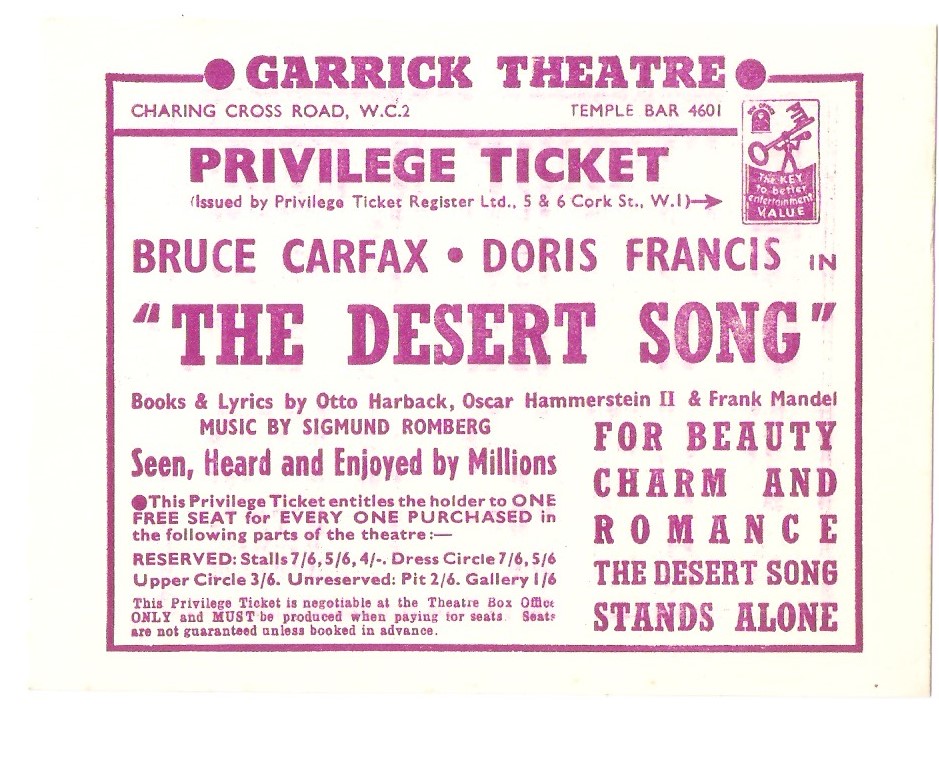OTD in early British television: 13 July 1939

John Wyver writes: Across nearly three hours on the evening of Thursday 13 July 1939 an outside broadcast of the operetta The Desert Song was transmitted from the Garrick Theatre in London’s West End. By this point the BBC’s mobile units were practiced at full-length relays of stage shows, but an especially dark scene in the drama posed a problem that in turn prompted an imaginative solution.
The Desert Song was a revival of a successful 1926 Broadway operetta with music by Sigmund Romberg and lyrics by Oscar Hammerstein II, Otto Harbach and Frank Mandel. Incongruously, as Wikipedia explains, the show
was inspired by the 1925 uprising of the Riffs, a group of Berber fighters, against French colonial rule in Morocco. It was also inspired by stories of Lawrence of Arabia aiding native guerrillas. Many tales romanticizing Saharan North Africa were in vogue, including Beau Geste and The Son of the Sheik.
Act 2 scene 4 of the drama, identified as ‘The edge of the desert’ took place on stage in near-darkness. As a consequence, producer D.H. Munro decided that this should be ‘doubled’ under the lights of Studio A at Alexandra Palace, with Phil White going through the stage moves of star Bruce Carfax in repelling a group of Riffs. The audio feed from the stage continued through the scene.
The technique had been first used earlier in the year for another OB of a musical, Magyar Melody. According to one observer watching that broadcast at its theatre, ‘The doubling was timed so perfectly that viewers were unaware of the switch-over from stage to studio.’ But the reprise of doubling in The Desert Song seems not to have attracted any press comment.
Header image: The ticket for The Desert Song comes from a fascinating blog post on the excellent website devoted to the works of author Walter Greenwood. This explains that the ‘Privilege Ticket Register’ was a scheme started in 1934 which sold two-tickets-for-the-price-of-one for shows at participating theatres like the Garrick. The post features a lengthy extract from The Stage in 1937 arguing against the scheme, on the basis that
It means deflation of the face-values of seats by a middleman operation, and in addition it means unequal treatment from the point of view of the public.
[OTD post no. 208; part of a long-running series leading up to the publication of my book Magic Rays of Light: The Early Years of Television in Britain in January 2026.]
Leave a Reply